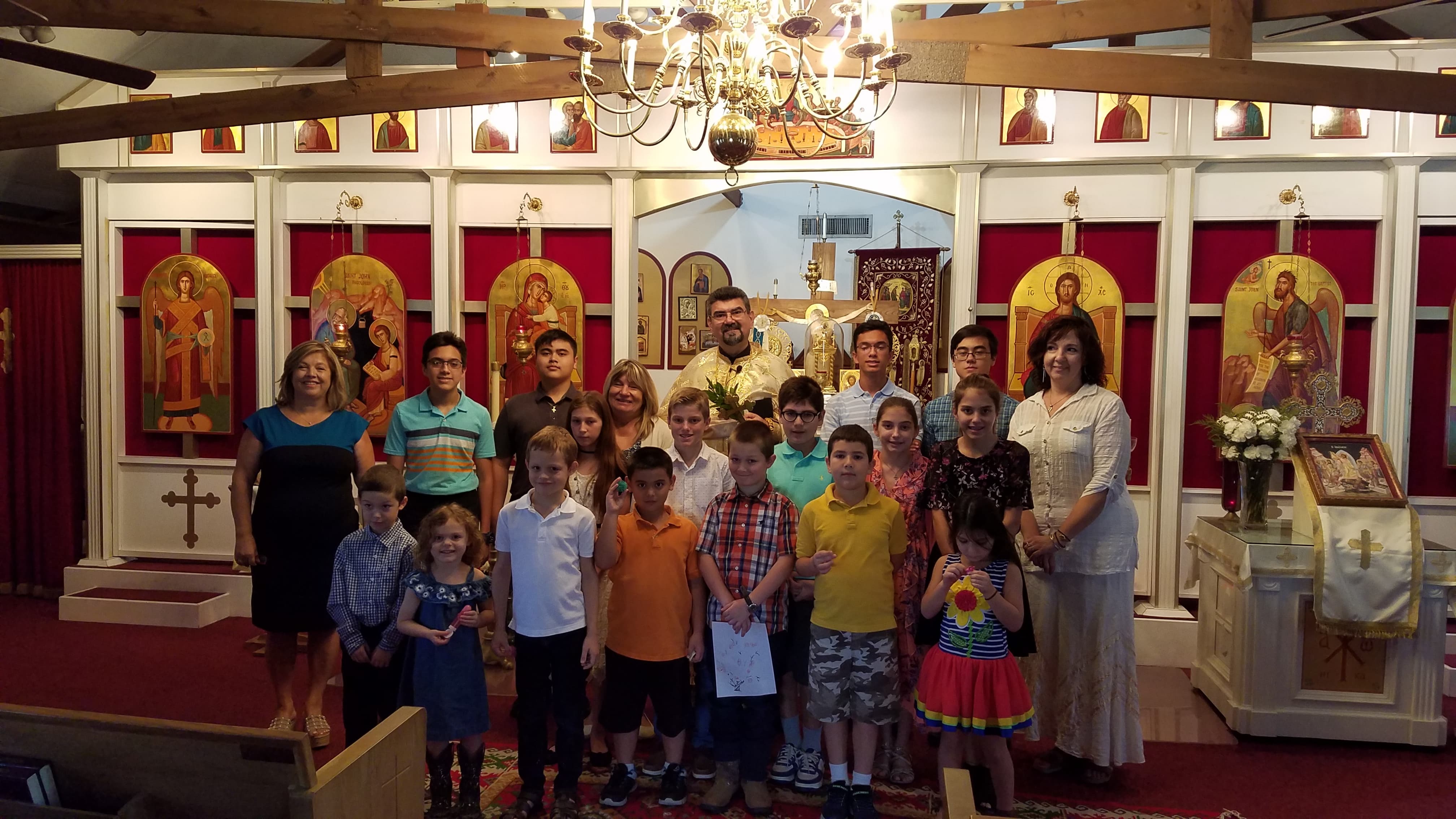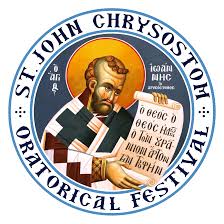IN OUR PRAYERS
Merja Tambourides, Mary Ann Donefas (friend of Colette’s), Robert Finch, Remy Koks, Abigail Robertson, Alice Marinos, Nicole, Demitri (Creighton’s daughter, & grandson).
The handmaiden of God Alice Marinos. May her memory be eternal.
COFFEE HOUR
Please join us after the Liturgy for coffee. Today's coffee hour is sponsored by the Red Team. Thank You!
Parishioners, please allow only coffee hour team members to park in the driveway so they can have easier unloading access.
Yellow: Ashley, L. Rigas, A. & K. Tambourides
Orange: Gazis, Marinos, Sokol, Suniga
Purple: Agler, Loveless, Richards, Savage
Green: Metaxas, Saphos, Zachariades
White: Lyashman, Partlow, Ely, Mourtakos
Red: Gazaw, Padilla, Hammock, M. Tambourides, Zacharias
Blue: Patelis, Rapos, Simeon
Pink: Craioveanu, Quinn, Tsougarakis, Haronitis
June 9 Red
June 16 Blue
June 23 Pink
June 30
AHEPA CHAPTER 518
AHEPA meeting today after church at the Parish Home. This is our last meeting of the season and election of officers for the next season will be conducted. Hope to see all members as well as interested men from the parish who want to be part of fraternal organization dedicated to philanthropy, education and Hellenistic ideas as well as supporting our church.

College scholarships from our local AHEPA chapter are available . Please send Allen Nelson a request for an application via e-mail at apnelson1@hotmail.com. Applications need to be turned in to Allen Nelson or any of the AHEPA officers by June 25. Also, scholarships are available from AHEPA Chapter 29 at the Annunciation Cathedral. These scholarships are open to AHEPA members and their children or grandchildren, and also to parish members and their children or grandchildren from any Greek Orthodox church in the greater Houston area. Please see Allen Nelson for an application. These applications are due by July 15.
SUNDAY CHURCH SCHOOL

Sunday School will resume in September. We will continue after Labor Day. Please honor your Orthodox Faith as a family throughout the summer.
INTRODUCTION TO ORTHODOXY
Intro to Orthodoxy class is postponed for the summer, and will resume again in the fall. If you know someone who would like to learn more about the Orthodox Faith, or if you're already an Orthodox Christian and would like to revisit your faith, please sign up! It's only a couple of hours a week for 8 weeks. A new schedule and syllabus will be available for download later this summer.
PHILOPTOCHOS
Philoptochos Scholarship Application is now available on our church website— www.stjohnclearlake.org
NARTHEX ROTATION SCHEDULE
We are looking for volunteers to help with this Ministry. This is first contact with parishioners and/or guests visiting us for the first time. You do not need to be on Parish Council to volunteer for this ministry. A smile and gentle demeanor goes a long way in welcoming a newcomer to our church. Please contact the office to volunteer.
Jun 9 Demetrios Mourtakos
Jun 16 TBD, Deena Metaxas
Jun 23 Maria Simeon, TBD
Jun 30 Bill Gazis, Maria Simeon
Jul 7 Lou Marinos, Bill Gazis
Jul 14 Chryse Padilla, Lou Marinos
Jul 21 Demetrios Mourtakos, Chryse Padilla
Jul 28 Ross Leo, Demetrios Mourtakos
PROSFORO
Of the many ways of supporting our Church, there are few which stand out as uniquely personal offerings of faith. The offering of Prosforo bread for the Divine Liturgy is one of them. We are thankful to the handful of ladies who have faithfully fulfilled this responsibility over the years and we invite more of our faithful - especially young families with children - to make this a part of their lives as well. Want to be added to our Prosforo list? Please see Maria Simeon.
Please make sure that Prosforo is in church before the start of the Orthros service on Sunday. Please write the date (or put a sticker with the date) on the plastic bags with the Prosforo. That way the oldest will be used first. Thank you for your help.
|
Jun 9 Evangelia Gazis
Jun 16 Kika Tampouridou
Jun 23 McFalls Family
Jun 30 Maria Simeon
Jul 7 Zaneta Rapos
|
Jul 14 Andriana T.
Jul 21 Ellie Ashley
Jul 28 Soula Koumbias
Aug 4 Metaxas Family
Aug 11 Maria Saphos
|

Donate to Our Church while Shopping!
 Donating has never been easier when shopping at Amazon. Bookmark the following https://smile.amazon.com/ch/76-0424472. AmazonSmile is a separate website devoted strictly for charitable organizations. For every purchase done through this website, AmazonSmile donates to St. John The Theologian Greek Orthodox Church.
Donating has never been easier when shopping at Amazon. Bookmark the following https://smile.amazon.com/ch/76-0424472. AmazonSmile is a separate website devoted strictly for charitable organizations. For every purchase done through this website, AmazonSmile donates to St. John The Theologian Greek Orthodox Church.
Do you shop at Kroger? Then you can support our Church! Here's how: Link your Kroger Plus Card to Community Rewards #UF318.
We invite all youth present to join us for Sunday School immediately following communion. We will be continuing our lessons and activities to help learn more about this journey through Lent.





 NEW YORK – The Greek Orthodox Archdiocese announces that the 36th annual St. John Chrysostom National Oratorical Festival finals, hosted by the Direct Archdiocesan District and the parish of the Archangel Michael Church in Port Washington, NY, will be broadcast live on Saturday, June 8, 2019 beginning at 9:30 am.
NEW YORK – The Greek Orthodox Archdiocese announces that the 36th annual St. John Chrysostom National Oratorical Festival finals, hosted by the Direct Archdiocesan District and the parish of the Archangel Michael Church in Port Washington, NY, will be broadcast live on Saturday, June 8, 2019 beginning at 9:30 am.